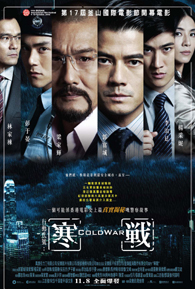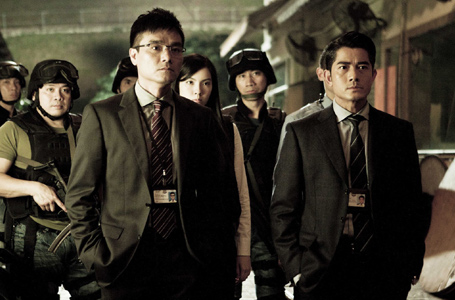
Cold War represents a crack at the same genre from the other end of Hong Kong action cinema, which caters to the thinking man with high concept scripts. The gimmick of Cold War is not that there's a highly sophisticated terrorist attack that is a few steps ahead of the police and defence force or that it might be an inside job involving or even orchestrated by factions within the state's security apparatus, and not even that the film unfolds as a procedural drama accounting the police investigations into this inside job, or its process of elimination and identifying the faction via its motives, means, and opportunity to carry out acts of terrorism, surveillance, and extortion throughout the film.
The gimmick rather lies in the writers' slick application of philosopher Pierre Bourdieu's concepts to their portrayal of the internal politics of the police force. (For the philosophically inclined, there's even a lengthy paraphrase of his writing in the film itself!) In a social field, there are dispositions that come 'naturally' to any set of entrenched positions or factions, and as a consequence, there exist opposing interests, political manoeuvring, and grandstanding in day-to-day 'politicking' within an organisation. Much of the thrills in Cold War actually come from watching how various factions in the Hong Kong police force play different 'games' with each other to gain different types of capital while they employ their unique weapons and strengths to come out on top of the terrorism investigations. Here, the drama is made flesh with the taut tensions between Tony Leung Kar Fai and Aaron Kwok's characters, who clash as the heads of the operational and administrative factions of the state's security apparatus.
If there's a complaint with this procedural drama, it's that the inter-departmental politicking of the police force easily overshadows the terrorism plot and turns it into a sideshow. Otherwise, Cold War is an excellent and intelligent film that may yet influence future Hong Kong cop shows.

